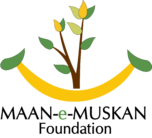Inaugural report
This report consolidates key findings and progress from multiple projects focused on community development and empowerment. These projects, primarily based in Balochistan, Pakistan, aim to address various socio-economic challenges through targeted interventions. The projects share a common goal of fostering sustainable development, enhancing livelihoods, and building resilience among vulnerable populations.
Cross-Project Themes and Synergies
- Location: Six Union Councils in Quetta, Balochistan
- Implementing Organization: World Food Programme (WFP)
- Objective: To create sustainable livelihoods for WFP cash transfer beneficiaries and provide a pathway out of poverty.
- Key focus: Developing women’s entrepreneurial skills and market engagement.
The WE-LED Program, led by the World Food Programme (WFP), was a comprehensive initiative aimed at transforming the lives of women from economically disadvantaged and vulnerable households. By focusing on gender equality, the program sought to address systemic barriers and empower women to achieve long-term economic self-sufficiency. Core interventions included equipping women with essential skills and education, improving access to resources, and fostering connections to viable markets. The program also emphasized the creation of Common Interest Groups (CIGs) to encourage collective growth and shared opportunities. Additionally, market assessments, capacity-building initiatives, and specialized skills training ensured that women were equipped to meet market demands effectively. Through targeted efforts, WE-LED facilitated market linkages, enabling women to generate sustainable livelihoods and contribute meaningfully to their communities.
- Location: Bangladesh and Pakistan
- Implementing Organization: CABI
- Key Focus: Agricultural development and training.
The Baseline Study for Inclusive Agricultural Development, implemented by CABI, aimed to foster growth and sustainability in the agricultural sector. This initiative focused on training and capacity building to empower farmers with modern techniques and practices. Key activities included conducting targeted training sessions, providing essential resources to enhance productivity, and promoting sustainable agricultural methods. By addressing critical gaps in knowledge and resources, the project worked toward creating an inclusive and resilient agricultural landscape.
- Location: Lasbela and Gwadar
- Implementing Organization: World Food Programme (WFP)
- Objective: To implement nutrition-sensitive initiatives for resilient communities.
The GLLSP-II project, implemented by the World Food Programme (WFP) and Maan-e-Muskan, aimed to transform preliminary ideas into concrete, actionable strategies that provide diverse and sustainable livelihoods. The project includes a focus on Disaster Risk Reduction (DRR), emphasizing community orientation and preparedness. Key interventions include establishing local nurseries, promoting kitchen gardens, and training on food preservation techniques. The project also focuses on staffing and strategic human resource allocation, along with a detailed monitoring and evaluation plan.
- Location: Quetta
- Implementing Organization: World Food Programme (WFP)
- Key Focus: Establishment of Gup Shup Centers and provision of essential resources.
Located in Quetta, this World Food Programme (WFP) initiative, supported by Maan-e-Muskan, focused on establishing ‘Gup Shup Centers’ as hubs for community engagement and resource distribution. These centers were equipped with display racks, weighing scales, shelves, organizers, and other essential provisions to support their functionality. Alongside the centers, the project emphasized poultry and livestock development, providing resources and training to enhance livelihoods and foster economic resilience within the community.
Conclusion
These projects represent a comprehensive effort to address socio-economic challenges in Balochistan by promoting sustainable development, enhancing livelihoods, and empowering communities. The projects demonstrate a commitment to community engagement, capacity building, and gender equality. By addressing the specific needs of the target populations and fostering collaboration among stakeholders, these initiatives are contributing to building a more resilient and prosperous future for the region.






